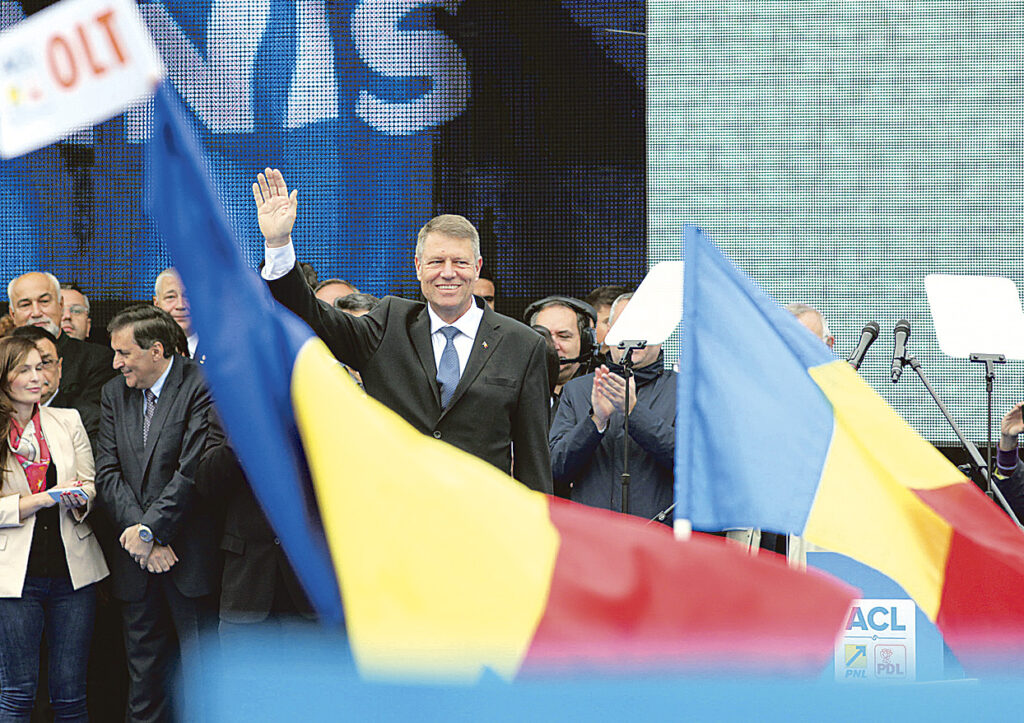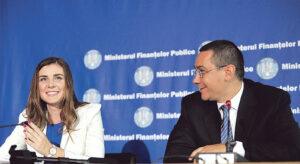The financial liabilities for 2015 are overwhelming. So far, none of those running for president came with any solutions. The political debates avoided a very tricky problem that will affect all Romanians – next year the government will need 15 more billion RON: social contribution cuts (five billion), reducing the budget deficit by 0.8% of GDP (five billion), supplementary defence expenses (about 2.5 billion) and increasing the government’s contribution to the EU-funded projects (about 2.5 billion).
How will the fiscal-budgetary policy look like: raising taxes or reducing expenses? Who will be favoured and who will lose? Which are economy’s priorities? The answers to these questions are not to be found in candidates’ economic programs. The texts (being them very long, like the one presented by Iohannis, or very concise, like the one published by Monica Macovei) only reveal the main directions. It’s obvious Victor Ponta likes the welfare state, a preference that he wraps in pompous phrases and hyper-optimistic promises (such as “Romania will become a top economy in Europe”), while Iohannis, Macovei and Tariceanu are favourable to the liberal state.
Elena Udrea mixes liberal and social beliefs, insisting on creating jobs and supporting the youth. Most part of her program is, however, dedicated to the foreign policy, unlike the one belonging to the candidate of the Christian Liberal Alliance (ACL), who is mainly dedicated to the economy: the basic liberal principles are listed, the causes behind the economic imbalances are analysed, but the proposed solutions sound like coming from a textbook.
The former Prime Minister Tariceanu is also following the right-wing doctrine, but the most liberal program belongs to Monica Macovei. She proposes, for example, privatising most state-owned companies. The candidates’ programs are similar regarding several issues: joining the Euro-zone, absorbing the EU funds, re-industrialisation or energetic independence strategies, but none succeeds to surprise. Ponta insists on his (debatable) achievements as Prime Minister, Iohannis celebrates the labour, Tariceanu has a predictable liberal rhetoric, Elena Udrea targets the youngsters, and Macovei uses the direct style that made her famous.
Calin Popescu-Tariceanu: Welfare and respect
- Annual economic growth – 1.5%-2.5%
- Absorbing the EU funds
- Developing the Bucharest Stock Exchange
- Attracting foreign investments
- Building farming infrastructure
- Romanian economy should not depend anymore on the government budget
Victor Ponta: Romanians’ Great Unification
- In 10 years Romania will be among the top 15 most competitive European economies (and among the top 40 most competitive global economies)
- “The top economy of Eastern Europe”
- At least 3% annual economic growth
- “The East European industrial centre”
- The East European technology hub, using as a competitive advantage the IT industry
- Joining the euro-zone in the next five years
- Continuing the big infrastructure and agriculture projects
- European funds, an important source for financing the big development projects
- Continuing to reduce VAT for food products
- Maintaining the flat rate tax for companies
- Directing the economic growth towards reducing the differences between the rich and the poor
- Raising pensions and salaries
Klaus Iohannis: The properly done things
- Liberal economy – competiveness and prosperity
- Building a new model of economic growth, based on competitiveness
- The Romanian economy shouldn’t be built on and around the government budget
- Work should be repaid and the public money should be well spent
- The idea of properly done things should resurrect
- Developing the middle-class, nation’s spine and the most eloquent criterion for prosperity
- Rethinking the role of the state by reducing its presence in the economy
- Settling a clear date for joining the euro-zone, as an anchor for disciplining the economic policies
- Fiscal and legislative predictability
- Fiscal competitiveness: reduced and simplified taxation
- The budgetary policy shouldn’t rule the fiscal policy
- Taking back the VAT to 19%
- Attracting major investments to agriculture
Monica Macovei: Monica’s Decalogue
- A minimal state that takes care of the essential functions
- The government shouldn’t be involved in the production and services sectors
- Any sector ruled by the government is a source of corruption, misspending, deficits and poverty
- All state-owned companies should be privatised
- The budget deficit should be set at top 3% by a new Constitution
- The budget deficit is an indicator for government’s lack of performance and not complying to its limits should be sanctioned by dismissal
- Borrowed money can only be used for development and investments that will bring profit
- All the methods allowing a public contract to be awarded without a tender should be eliminated
- The flat rate tax should be kept at 16%
- The Fiscal Authority should be radically reformed
- IT, creative industries, agriculture and tourism are the sectors with a competitive advantage
- The Tourism Ministry should be abolished
- The entrepreneurial spirit and thinking should be encouraged
Elena Udrea: Beautiful Romania
- The key for Romania’s future is the balance between the budgetary discipline and promoting the durable growth, protecting in the same time the Welfare Europe
- Closing the Transatlantic Trade and Investment Partnership for a common market of 900 million consumers
- Creating jobs by public investments
- Increasing the efficiency of the EU funds spending and directing them towards major infrastructure investments, education, research and innovation, improving the business environment
- The ‘Europa 2020’ strategy, the main element for economic growth and for creating jobs
- Increasing the labour force participation rate among young people
- Reducing the energetic dependence
- Joining the euro-zone





